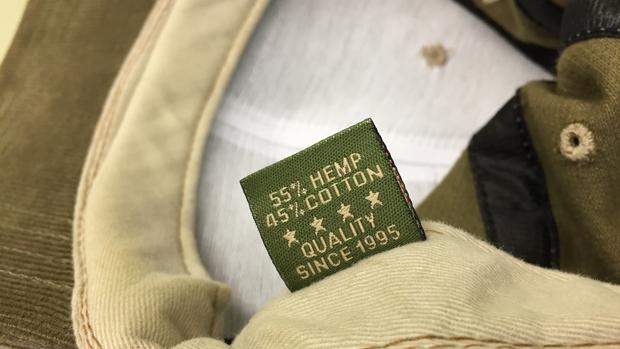WILLMAR—In an effort to diversify their farming operation, the Hultgren family planted 40 acres of organic industrial hemp this year on their land in northern Kandiyohi County.
After making adjustments on the combine to prevent the rope-like stems from wrapping around the equipment, the hemp seeds were harvested and cleaned in September.
“I thought it went OK,” said Noah Hultgren, who farms with his brother, Nate, and parents Duane and Nancy Hultgren.
With a history of planting corn, soybeans and sugar beets, Hultgren said it’s difficult for the first-time hemp growers to gauge whether or not the hemp harvest was above or below average. But he said based on what they’ve been told from the company that supplied the seeds, the yield was “decent.”
When it’s time to sell the crop, Hultgren said they will haul the seeds all the way to Eau Claire, Wisconsin.
“That’s definitely far enough,” he said.
That could change in the future, however, if there’s enough interest and research-backed evidence to support development of an industrial hemp processing facility here.
The Ag and Renewable Energy Committee, which is part of the Kandiyohi County and City of Willmar Economic Development Committee, is hosting a workshop at 7:30 a.m. Nov. 15 at the Kandiyohi Power Cooperative community room to present information about the industrial hemp value chain.
Having farmers grow industrial hemp—and having a facility to process hemp seeds—is a “chicken and egg situation,” said Connie Schmoll, business development specialist with the EDC.
The committee has set aside money to research potential value chain facilities in the county.
This workshop will launch the process of exploring the potential for industrial hemp to determine if there’s an actual market before further investments are made, Schmoll said.
Harold Stanislawski, project development director with the Agricultural Utilization Research Institute who’s in charge of the industrial hemp initiative in Minnesota, will discuss aspects of growing, processing and marketing hemp.
AURI is currently in the midst of researching the feasibility of hemp production and processing to determine if it’s a venture that can be pursued without undue risk to participants.
“It’s never too fun to be serial number one because that’s where the mistakes are made,” Stanislawski said.
He said AURI researchers are examining what works and what doesn’t work with hemp as food, fiber, pharmaceuticals and livestock feed. “It’s going to be a very innovative time,” he said.
Part of the exploration process will depend on what action Congress takes in the farm bill regarding hemp.
Currently, industrial hemp is listed as a controlled substance and can only be grown in states that have approved pilot hemp projects, as Minnesota has.
There are proposals to legalize industrial hemp so it can be grown anywhere in the United States, without restrictions, as an agricultural crop.
Industrial hemp is a distant cousin to marijuana, but with extremely low levels of tetrahydrocannabinol—the chemical compound that produces a “high.”
Doing research now will help farmers and investors be ready with plans if the new farm bill does include an industrial hemp provision, Stanislawski said.
Charles Levine, owner of Hemp Acres LLC in Waconia, will also speak at the forum. Levin operates the first state-approved processing facility where he produces food-grade protein and oil-extraction.
Hultgren said having a processing facility in Kandiyohi County could make a difference in whether their family farm continues to grow industrial hemp.
Reservations to attend the workshop are required by Tuesday by contacting the EDC at edc@kandidevelop.wpenginepowered.com. The $10 cost includes breakfast.
If you go
What: Industrial hemp value chain workshop
When: 7:30 a.m. Nov. 15, 2018
Where: Kandiyohi Power Cooperative Community Room, 8605 47th Street Northeast, Spicer
Info: RSVP by Tuesday, Nov. 13, via email to edc@kandidevelop.wpenginepowered.com. A $10 fee includes a light breakfast.
West Central Tribune by Carolyn Lange

